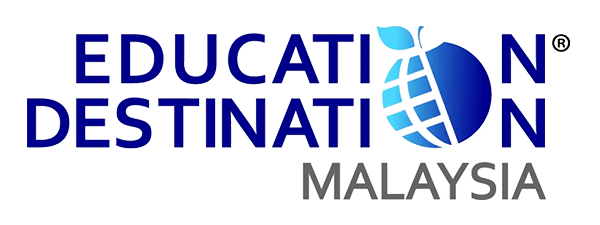Overview of the Education System in Vietnam
Education is seen as a national priority in Vietnam. Although the education system in Vietnam has its shortcomings, the government has made a commitment to improve the education system overall with budget increases and constant development. The primary school completion rate is high in Vietnam in addition to low student-teacher ratios. The government also introduced the “Fundamental School Quality Level Standards” to provide universal access to education and ensure that minimal conditions were met in every primary school.
Current Structure and Format
Children in Vietnam typically enter preschool at the age of three. A preschool education in Vietnam lasts for three years and focuses on foundational language skills such as learning the alphabet. After that, children transition to primary school where they will attend from the age of six to 11. Secondary school years are divided into lower secondary and higher secondary education. Lower secondary lasts four years whereas higher secondary lasts three years. Students are required to sit for entrance and leaving examinations during secondary school. There are a number of higher education options in Vietnam such as universities, senior colleges and research institutes. In addition, students can enrol in junior colleges, professional secondary schools or vocational schools.
Vietnam Education Facts
Preschool in Vietnam isn't compulsory, so if you want your child to attend you have to enrol directly with the school you have chosen. The school week in Vietnam is six days, beginning on Monday and ending on Saturday, but children usually only attend school for half the day. The school year usually lasts from September until May. The curriculum for primary schools includes typical subjects such as Vietnamese language, math, nature and society, arts and physical education. Students are also taught morals in school.
In higher classes, and in secondary education, a foreign language (usually English, but sometimes Chinese or French), history, natural sciences, technology, music and geography are added. Morality is only part of primary education.
Private and Public Schools in Vietnam
There are more than 15,000 elementary schools, 10,000 lower secondary schools and 2,000 upper secondary schools located in Vietnam. The country is also home to over 70 international schools located in Vietnam. The majority of international schools in Vietnam can be found in Ho Chi Minh City. There are also international schools located in expat-friendly areas such as Hanoi, Hoi An and Da Nang.
Teachers in Vietnam
Teachers in Vietnam are highly respected by society and are seen to hold prestigious positions. There is a familial relationship when it comes to teachers and students and is seen by the terms students use to refer to their teachers. You will often find students speaking to teachers using the same terms they would when speaking to their parents.
Average Cost of Education in Vietnam
The cost of education in Vietnam is affordable but not entirely free. The Vietnamese government subsidises a bulk of the education costs. However, elementary schools still charge a variety of supplementary fees, ranging from maintenance levies to fees for the acquisition of books and uniforms. Secondary public schools are also allowed to charge small tuition fees. In addition, it is common for parents to pay extra for tuition classes to ensure their children succeed academically.
International Schools in Vietnam Fees
Like the majority of international schools across Asia, each international school in Vietnam has a unique fee structure. Annual tuition fees for international schools are anywhere between USD10,000 and USD20,000. These fees do not include fees for application, registration and deposit. Parents should also take note of the hidden fees such as building development fee, transport fee and the cost for school supplies and uniforms.
Government Bodies Involved in Education in Vietnam
The Ministry of Education and Training (MOET) of Vietnam oversees the country’s education system. Over the years, MOET has made many reforms to the education system in Vietnam including making English a bigger part of the national curriculum.
Education Levels in Vietnam
Primary school or elementary education in Vietnam lasts for five years and is compulsory for all Vietnamese children. It is not mandatory for students to continue their secondary school education in Vietnam. If they wish, students can continue their lower secondary education or enrol in short-term vocational training programmes. They will be granted the Lower Secondary Education Graduation Diploma upon completion of their lower secondary education. Upper secondary education is also not compulsory for Vietnamese students. The upper secondary curriculum is known to be challenging and examination-based. Students will be awarded the Secondary Education Graduation Diploma upon graduation.
Vietnam education problems
The education system in Vietnam still faces spatial and gender inequalities. Access to quality education especially at lower secondary levels is limited in remote areas. Female students and ethnic minorities also face problems accessing education and finishing school. In addition, only five years of primary school are compulsory, causing students from lower income families to opt for the workforce instead. Cost of supplies, such as books or school uniforms, also cannot be afforded by families living in rural areas.
Vietnam country stats
Vietnam is a Southeast Asian country bordering Laos, Cambodia and China. The country’s economy has thrived in recent years leading to a rise in expatriates, foreign investments and a growing middle-class population. These factors have also led to the growing number of international schools in Vietnam. Vietnam is home to over 97 million residents; 80,000 of them being expatriates. The country enjoys a tropical monsoon climate. Hanoi is the capital city of Vietnam. The official language of Vietnam is Vietnamese; however, many languages are spoken across the country including Mandarin, Khmer, English, and French.
Expats living in Vietnam information
The top three reasons why expatriates move to Vietnam are career advancement, finding new challenges and improving their quality of life. There are many expatriates living in Ho Chi Minh City as it presents plenty of work opportunities in teaching, technology, manufacturing and tourism. Other expatriate-friendly areas in Vietnam include Hanoi, Da Nang and Nha Trang.
Standard of living in Vietnam
The standard of living in Vietnam has steadily improved with economic development and a boom in the tourism sector. Expatriates find Vietnam a safe country to live in with nice weather, low cost of living, lively culture and the steady improvements in the country’s infrastructure.
Public transportation in Vietnam
Traffic congestion in major cities in Vietnam such as Hanoi or Ho Chi Minh city is common. Therefore, the fastest and most convenient mode of transportation is the motorbikes. Buses and taxis are also available in Vietnam.
Visa for family and students in Vietnam
Expatriates wanting to work in Vietnam need to acquire a professional or business visa. A long-term work permit is needed after that visa has expired. For international students, they can enter with a tourist visa first and arrange their student visa upon arrival. International schools in Vietnam usually provide foreign students with the formal documentation needed depending on how long they plan to stay in Vietnam.
References
- https://www.justlanded.com/english/Vietnam/Vietnam-Guide/Education/The-Vietnamese-education-system
- https://wenr.wes.org/2017/11/education-in-vietnam
- https://www.globalpartnership.org/where-we-work/vietnam
- https://transferwise.com/gb/blog/vietnamese-education-overview
- https://www.expat.com/en/guide/asia/vietnam/
- https://immivietnamvisa.com/vietnam-student-visa/

































